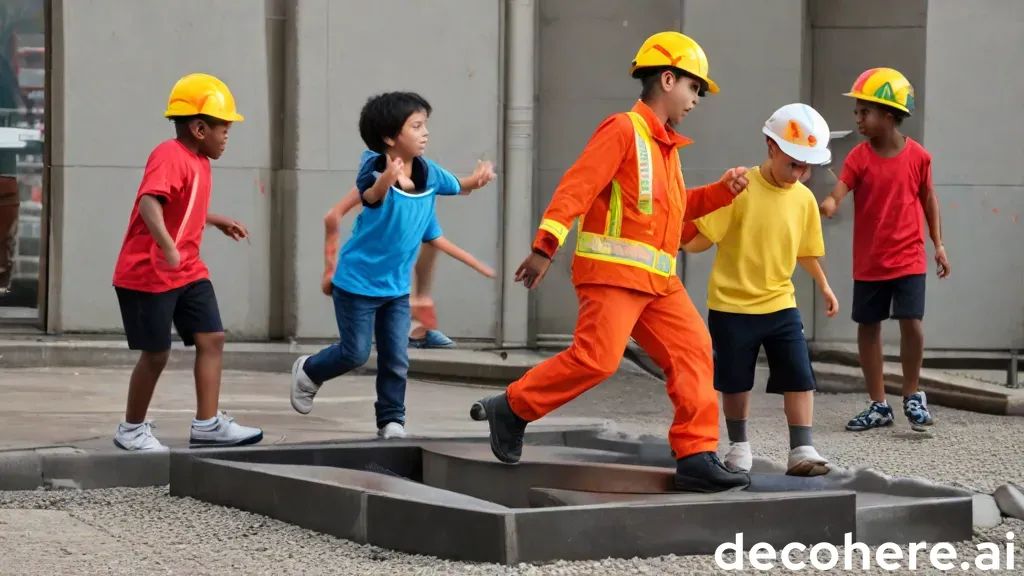Fire safety is a critical life skill that every child should learn. Teaching children about fire safety not only helps prevent accidents but also empowers them to act correctly in case of an emergency. Here are some key strategies and activities to educate children on fire safety effectively.
Why Fire Safety Education Matters
Fire incidents can occur unexpectedly and have devastating consequences. Children, being naturally curious and unaware of the dangers, are particularly vulnerable. Educating them about fire safety ensures they know how to prevent fires, recognize hazards, and respond appropriately during emergencies. This knowledge can save lives and reduce injuries.
Key Fire Safety Lessons for Children
- Understanding Fire Hazards
- Teach children what can cause fires, such as matches, lighters, electrical appliances, and unattended candles.
- Explain the dangers of playing with fire and the importance of keeping a safe distance from potential hazards.
- Stop, Drop, and Roll
- Demonstrate the stop, drop, and roll technique if their clothes catch fire.
- Practice this drill regularly to ensure they remember the steps.
- Creating a Fire Escape Plan
- Develop a fire escape plan for your home, identifying two ways to exit each room.
- Involve children in creating and practicing the escape plan to ensure they understand the routes.
- Recognizing Smoke Alarms
- Teach children what smoke alarms sound like and explain their purpose.
- Make sure they know to leave the building immediately if they hear the alarm.
- Calling for Help
- Show children how to call emergency services and provide essential information, such as their address and the nature of the emergency.
- Emphasize the importance of staying calm and speaking clearly when seeking help.
- Fire Drills
- Conduct regular fire drills at home to practice the escape plan.
- Make drills a fun and engaging activity to reinforce the lessons without causing fear.
Fun and Educational Activities
- Interactive Storytelling
- Use storybooks and videos that teach fire safety in an engaging way. Stories about firefighters and rescue missions can captivate children’s attention and impart valuable lessons.
- Fire Safety Games
- Create or find online fire safety games that reinforce learning through play. Games can include identifying hazards, matching safety tools, and practicing escape routes.
- Crafts and Coloring
- Engage children in crafts, such as making their own fire truck models or coloring fire safety-themed pages. This can be a fun way to discuss fire safety topics.
- Visits to Fire Stations
- Arrange visits to local fire stations where children can meet firefighters, see the equipment, and learn about fire safety firsthand. This experience can make the lessons more tangible and memorable.
- Safety Songs and Rhymes
- Teach fire safety through songs and rhymes, making it easier for children to remember key points. Simple and catchy tunes about stop, drop, and roll or the sound of smoke alarms can be very effective.
Involving Parents and Caregivers
Parents and caregivers play a crucial role in reinforcing fire safety education. Encourage them to:
- Discuss fire safety regularly at home.
- Practice the fire escape plan with their children.
- Set a good example by following fire safety rules themselves.
Conclusion
Fire safety education for children is an essential part of their overall safety training. By teaching them about fire hazards, emergency responses, and the importance of being prepared, we can help protect them from potential dangers. Start early, make learning fun, and regularly reinforce these lessons to ensure that children are equipped with the knowledge and confidence to handle fire emergencies safely.
Stay safe, and remember: teaching fire safety today can prevent tragedies tomorrow.

#FireSafety #ChildEducation #EmergencyPreparedness #SafetyFirst #HowToSurvive #PublicSafety #FireDrills #SafetyEducation #FamilySafety

